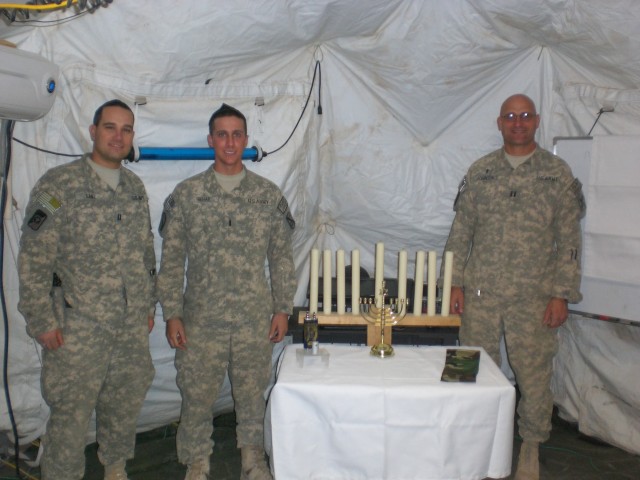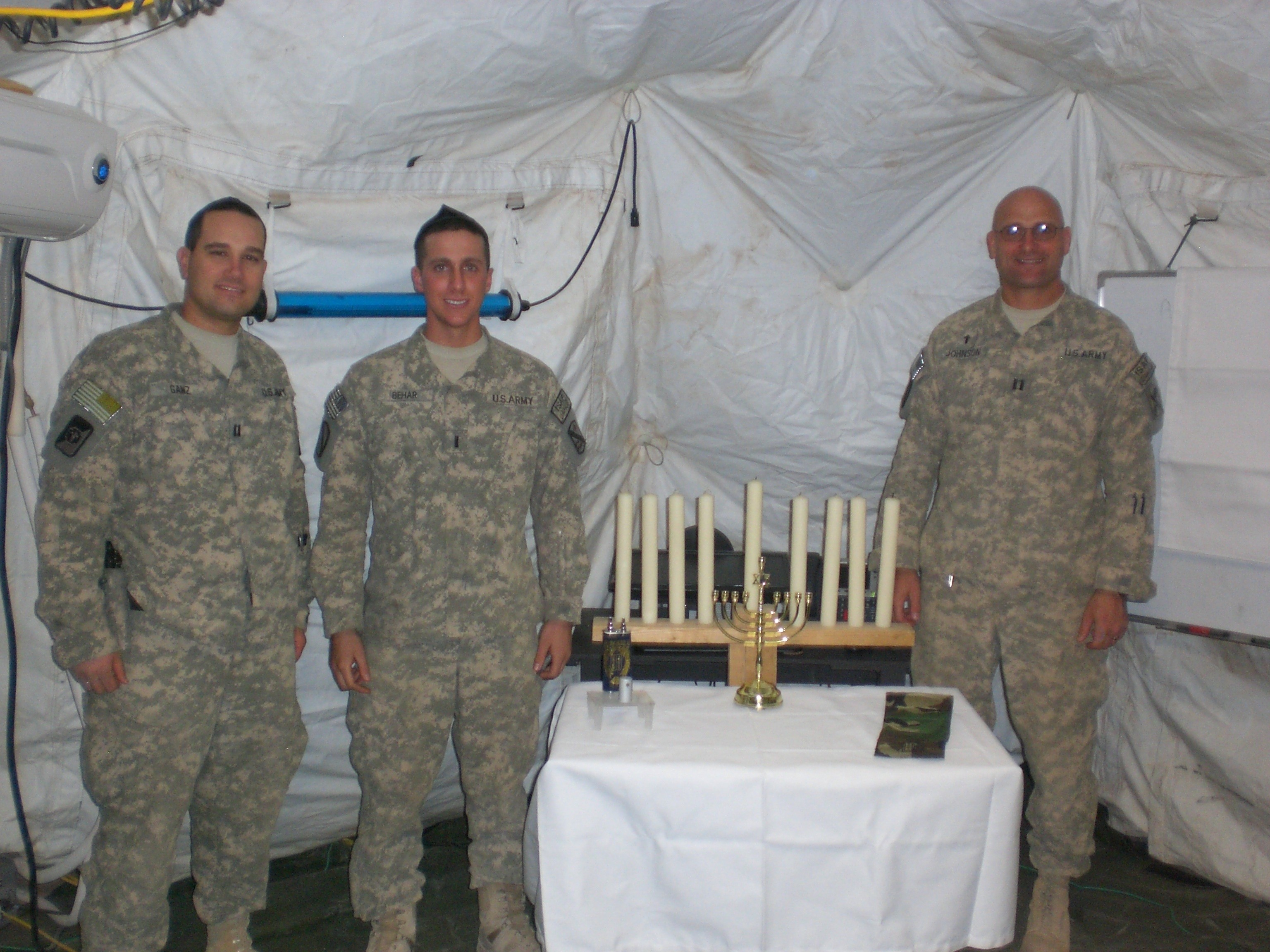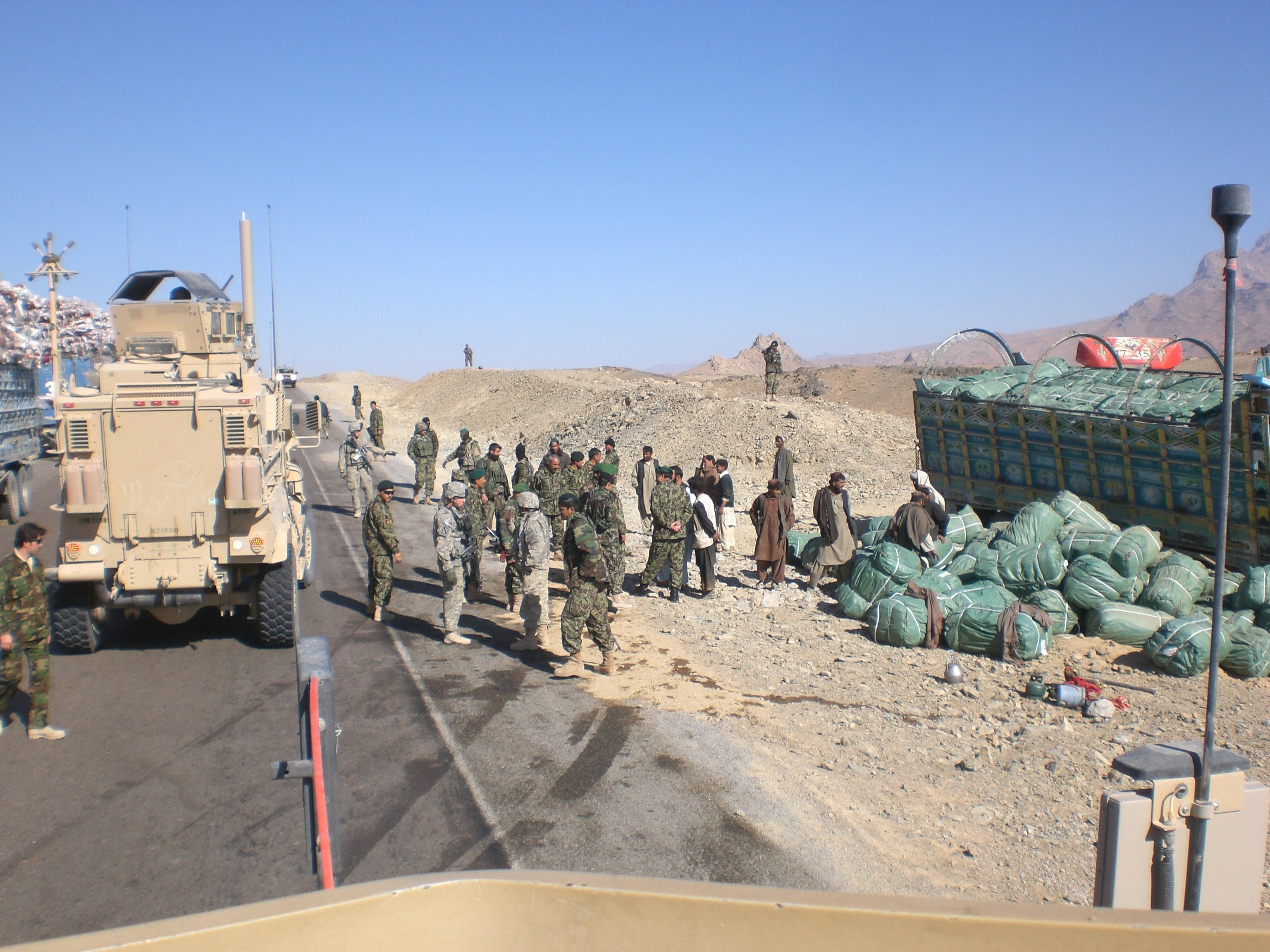Avi Behar, a 23-year-old lieutenant from Cherry Hill, N.J., was deployed to command a convoy mission in western Afghanistan last August, just a month before the Jewish new year. Since he was profiled in the Jewish Exponent, the young officer has shared occasional letters about his experiences.
In the following passage, which has been edited for brevity and clarity, Behar reflects on an encounter with an Afghan in distress on the first night of Chanukah.
"As I stood in yet another absurdly long line waiting to board yet another cramped and noisy military flight, an awareness of the equilibrium of life came to mind. A few weeks ago, on our way back along our normal route through Western Afghanistan, my convoy team came across a man staring hopelessly at his overloaded truck, full of the season's harvest, stuck on the side of the road. As my scout vehicle relayed the info to me, I decided to investigate the issue (I use the word 'investigate' very appropriately as to ensure that what we came up on was not a ploy for something deadly).
After dismounting with my interpreter Abdul, we learned that the man swerved to avoid colliding with an oncoming vehicle. The local was quite emotional at the thought of his harvest on the side of the road, which would surely not remain there throughout the night. There were soldiers of the Afghan National Army (ANA), on the scene, but their small and old Ford pick-up trucks proved unable to help.
My plan was to hook up my lead gun truck to the mired truck and yank it from the median of the road. This, too, was unsuccessful. As the fruitless recovery attempts continued, the Afghan soldiers began walking around frantically.
Moments later a convoy of about six armored ANA vehicles arrived. This is very rare - heavy armament is usually reserved for VIPs. A tall man, in a suave fashion only imagined in Hollywood movies, jumped out of one of the vehicles and began hastily walking towards me. Behind him, an entourage of about eight others stumbled as they attempted to give orders to the ANA soldiers already on the scene while struggling to keep up with the swiftly-moving man.
I was introduced to Brigadier General Akram. He commanded an impressive military posture, standing at least 6'2" with a slight pot belly and thick mustache. Immediately, both our focuses shifted to the recovery operation, which at this point was failing miserably.
This was the ultimate test. Could my team prove to the Afghans that not only were we willing, but also able to help' If we did not succeed, this failure would reflect poorly upon on my unit, my country and the United States Army.
We deployed to Afghanistan to help the Afghans. That truck was going to be un-stuck by hook or by crook! This man's livelihood depended on it, and there was no way I was about to leave unsuccessfully.
I ordered another gun truck to hook up to the first truck which, in turn, would be anchored to another vehicle. As the vehicles were hooking up, I handed some beef jerkey to the locals who had been there all day (for some reason, it seems to be a local favorite).
Finally the vehicles were ready. The crowd quieted as the tires spun, smoked and screeched. Locals crossed their fingers; their faces praying "please let this work." Moments later the vehicle was yanked out!
The locals began clapping and cheering. My interpreter and I shook hands as I stared with joy and relief at the recovered vehicle and the happy locals. Brigadier General Akram shook both my hands and, with seemingly natural poise, pointed at the name on my body armor. "Behar," he said. "Yes, Sir. Lieutenant Behar," I replied.
With a smile from ear to ear, he said, "I will find you." He began walking away and his entourage of followers each shook my hand quickly as they hurried behind. The local, whose vehicle was now safe from pillaging, shook my hand with the greatest look of relief I had ever seen.
As we returned to our vehicles and began our drive back, the sweet taste of victory was in the air. That day, we accomplished our mission. We made a difference.
Upon returning that night, exhausted but pleased, our battalion chaplain put together a Chanukah service. We had discussed the idea a few days prior, but I wasn't expecting what I was about to experience.
As I tiredly walked into the tent that serves as our chapel, I gazed upon what appeared to be a miracle: A menorah, about four feet tall, stood in the front of the room.
Capt. Brett L. Johnson, a Christian chaplain, had built this unbelievable object that day using wood, scrap plywood, and a few hand tools. He had also researched Chanukah so he could lead services for the four of us who came. He had reached outside his faith and provided a gift so largely disproportionate to any that I had ever given.
That night, that equilibrium I mentioned occurred to me. I am a member of the Jewish faith and that afternoon had helped a Muslim. That same night, a Christian brought the best holiday gift I could have asked for.
This is the purpose of life: helping others. That is what we, as humans, faiths irrelevant, were created for. Separated by birth and many other factors, we all are created in His image. And though the miracles of our faith happened thousands of years ago, they continue to happen to this day.
(Reprinted by permission from the "Jewish Exponent")




Social Sharing